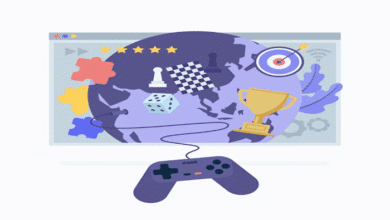The Psychology of Online Gaming: Why We Get Hooked on Virtual Worlds

Online gaming has transformed from a niche hobby to a global phenomenon, drawing millions of players into immersive digital landscapes. But what makes these virtual worlds so captivating? The answer lies in psychology. Game developers employ various psychological principles to keep players engaged, making gaming an enjoyable yet sometimes addictive experience.
1. The Power of Escapism
One of the biggest reasons people turn to online games is to escape reality. Games offer an alternative world where players can take on different identities, embark on thrilling adventures, and experience achievements that may be harder to attain in real life. Whether it’s exploring vast fantasy realms, racing against the best, or building virtual empires, these experiences provide a break from everyday stress.
2. The Reward System and Dopamine Release
Most online games are designed around a reward-based system. Every time a player completes a quest, wins a battle, or levels up, their brain releases dopamine—a neurotransmitter associated with pleasure and motivation. This “feel-good” chemical encourages players to keep playing, as they seek more rewards and achievements. Slot-style games, like slot777, leverage this system by offering frequent small wins to keep players engaged.
3. Social Connection and Community
Humans are social beings, and online gaming taps into this fundamental need. Multiplayer games allow players to interact, form friendships, and even build entire communities. Guilds, clans, and team-based gameplay encourage cooperation, fostering a sense of belonging. The ability to communicate and strategize with others enhances the gaming experience and keeps players coming back.
4. The Competitive Drive
Competition is another psychological factor that fuels online gaming. Leaderboards, ranking systems, and tournaments push players to improve their skills and outperform others. Games like judi qq poker capitalize on this by integrating skill-based challenges, where players can test their abilities against opponents worldwide. Winning in these competitive settings brings a sense of accomplishment, further reinforcing the desire to continue playing.
5. The Fear of Missing Out (FOMO)
Many online games employ limited-time events, daily rewards, and exclusive in-game items to create urgency. This taps into FOMO—the fear of missing out—compelling players to log in regularly. Missing a daily login bonus or a seasonal event can create a sense of loss, encouraging habitual gaming behavior.
6. Personalization and Progression
Online games provide a sense of growth and progress, whether through character customization, skill upgrades, or unlocking new levels. The ability to shape a unique in-game identity adds emotional investment, making it harder to step away. Many games also include milestones and achievements that give players tangible goals to strive for, reinforcing long-term engagement.
Final Thoughts
The psychology behind online gaming is complex, blending reward systems, social interaction, competition, and personalization to create an engaging experience. While gaming can be a fun and fulfilling activity, it’s essential to maintain a healthy balance and be mindful of excessive play. By understanding why we get hooked, we can enjoy virtual worlds responsibly while making the most of what they have to offer.





